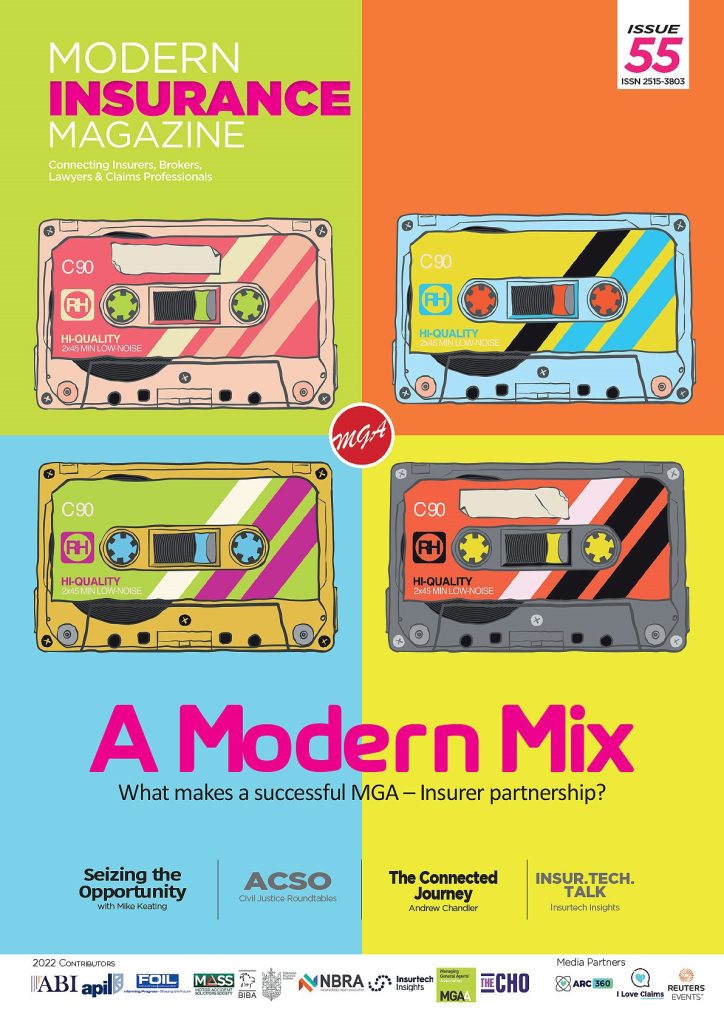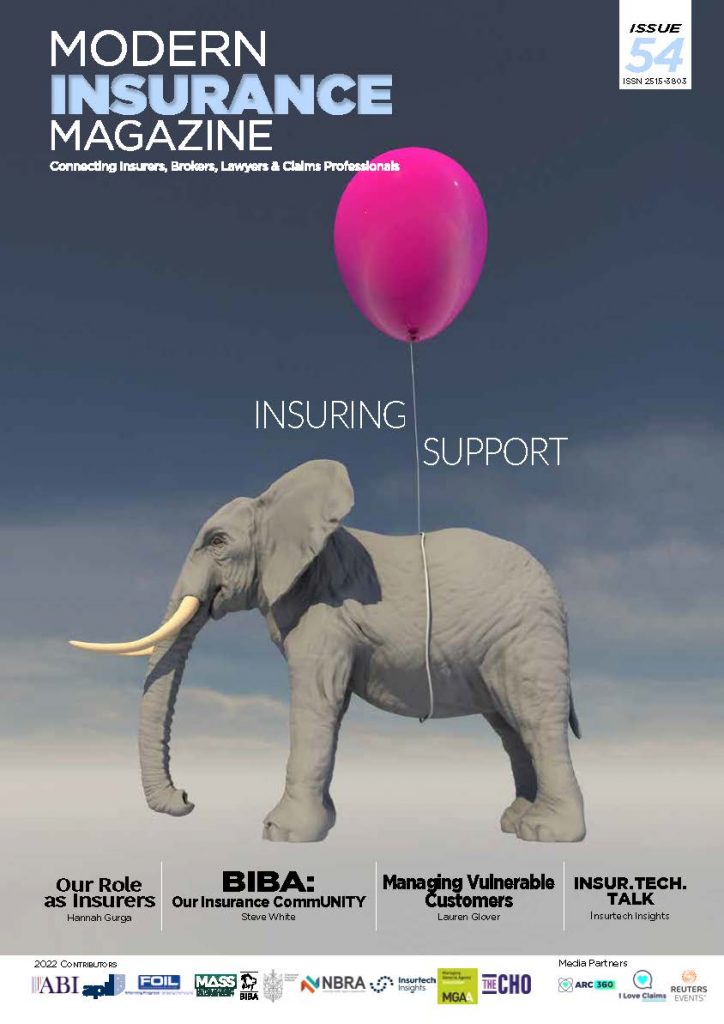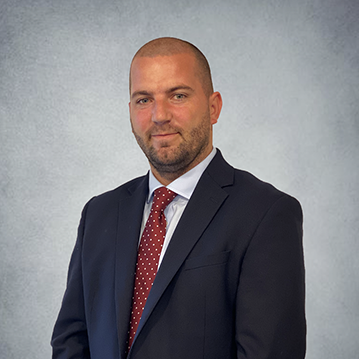Copy provided by e2e Total Loss Vehicle Management
Experts from across the insurance industry met late in 2021 to consider the perennial – and one of the most pressing issues facing the sector at the moment – total loss vehicle management. Despite around one fifth of all damaged vehicles ending up as total losses, it’s an often-obtuse area of the motor claims continuum.
The meeting asked attendees to consider the view that an opportunity exists to more effectively tap into total loss and end of life vehicle stock to create alternative sources of parts for the benefit of insurers, customers, repairers and the wider environment.
Timely
The timely event was hosted by I Love Claims (ILC) in association with e2e Total Loss Vehicle Management with the far-reaching discussion addressing everything from industry and customer attitudes to salvage and reclaimed parts; to the ethical question of value and price – via the benefits of better linking salvage and repair processes; to legislation; and whether cross industry co-operation would help to realise opportunities.
Taking part in the discussions were:
- Andrew Ridley, Commercial Manager, DLG
- Trevor Webb, Claims Director, Sabre
- Adam Murray, Motor Technical Manager, Aviva
- Nicholas Rossiter, Motor Damage Strategy Manager, Allianz
- Chris Morgan, Director, ASM
- Mia Constable, Head of Business Development, e2e Total Loss Vehicle Management
- and Neil Joslin, the then chief operating officer, e2e Total Loss Vehicle Management
all of whom shared their insights in an open, transparent environment with the objective of contributing to an improved collective industry understanding of the issues and opportunities.
Reputational challenges
The management of salvage and total losses features opportunities and challenges, but too often it has been disregarded at a strategic level and consequently labelled ‘dysfunctional’ at a tactical level.
The current context is that insurance policies and marketing only really address repair as the outcome of a claim.
However, a significant number of vehicles are written off and customers who wish to preserve their vehicle can find the process a minefield once economic write-off levels are reached on a repair.
Seemingly, few policies address the options available apart from talking about the potential for using non-OE and reclaimed OE parts.
Thought to be contributory to this context, the meeting addressed the ‘dirty’ image of the salvage industry and explained how this is now a wholly inaccurate impression. Representatives from e2e added, that in their experience, salvage does not receive the same attention from the leadership of insurers and in their supply chain teams as does legal or loss adjusting; despite its revenue generation being second only to premium income for motor insurers.
Fundamental shifts
To overcome this, the industry will have to make fundamental technological and philosophical shifts – some are known now and some will only be revealed as new tech comes onboard.
It was thought that barriers include both ‘soft’ attitudinal and ‘hard’ process issues. In the past these have combined to restrict investment in the insurer/salvage interface.
Perhaps the first step is a change in approach to managing salvage and repair. For too long they have been considered independent of each other, operating in silos. Arguably, this has created inefficiencies in the process and wastage – especially around the opportunity afforded by recycled parts. It was recognised that once classed as a total loss the momentum of a claim rarely allows reconsideration of the vehicle’s status by imaginatively considering the repair method and use of alternative parts.
Attendees agreed that it was critical to start thinking like customers – whose desired outcome is namely to have their personal mobility restored – and see repair and salvage as complimentary parts of the same process rather than two different types of claim.
This sort of ‘new thinking’ it was suggested, could, if fully developed even result in entire business models transforming, with repairers evolving to include dismantling and salvage operators becoming waste managers or recyclers.
In the meantime, the assembled agreed that closer links between repair and salvage with a more deliberate strategy of total loss avoidance could be a benefit to all.
Reclaimed parts
A new joined-up approach would logically, if applied correctly, see greater numbers of reclaimed parts stripped from total losses re-entering the market.
It was suggested the UK lags behind other developed markets in this area, with historical concerns about stock availability being a perceived stumbling block. Several large insurers are embracing the use of reclaimed parts but others are not confident that they could consistently access the stock in what one described as an ‘embryonic’ sector.
The representatives of e2e were keen that this perception is addressed as the salvage and recycled parts industry has moved on from when these concerns were first articulated. Huge investments have been made in the supply chain which is allowing several insurers to confidently take advantage of the opportunities.
Consumer appetite
Those in attendance agreed that consumer appetite for green initiatives was growing. However, there is a seeming lack of confidence in marketing ‘green motor policies’ at present. Reclaimed parts cannot be used in all circumstances and as such, ‘green-labelled’ products could falsely raise customer expectations. There is also the potential challenge for demand to outstrip supply.
However, with many motor policy wordings allowing for the use of ‘alternative parts’, there seems sufficient capacity in the sector to allow reclaimed parts to become 10-20% of the parts used in repairing vehicles.
Considerations such as the vehicles being repaired are ‘often younger than the parts being made available’ and that reclaimed parts can only be used on non-safety related components will always see a natural restriction in the proportion of reclaimed parts use.
As an important step into the future, attendees called for greater consistency around the description of reclaimed parts, suggesting also that a review and update of the Salvage Code of Practice might bring more transparency and reassurance to the market. For example, attendees pointed out that, at the moment, there is no audit trail for Category S vehicles and the question was raised: “is there actually an industry benefit in them being stripped to boost reclaimed parts stock?”
Repair cost inflation
Profitability in the insurance market is founded in the delicate balance between premium and claim cost. The motor insurance market has rarely made an underwriting profit in the last decade. It was suggested that customers react to any slight change in premiums, meaning insurers have traditionally been reluctant to try new practices for fear of disturbing the balance.
However, there are two new market influences being felt in 2021/22. The first is high repair cost inflation and the second is evidence that customers are more willing to pay a premium for products from companies exhibiting sustainable and/or ethical trading policies.
With insurance being a commodity it is unlikely consumers will enact on this principle until it is more established in other sectors and markets. However, a better presentation of the environmental efforts of insurers, including the treatment of salvage, would only assist customers in their purchase considerations
The meeting discussed that a strategy of repair over replace created to combat cost inflation could also help demonstrate sustainable credentials. To provide transparency and choice for the customer, insurers could also consider changes in processes for example the creation of optional policy pricing models ie with reclaimed parts and without.
Thinking differently
The use of reclaimed parts, although important and potentially highly beneficial, is just one solution with many of the longer term answers still to be identified. The good news is that insurers are in the right frame of mind to discover them and those represented at the roundtable said their company recognised that yesterday’s data would not inform tomorrow’s experience and had thus created teams to scan the horizon for innovations.
They said much of the focus is, of course, on new technologies such as electric vehicles and ADAS, while they are also considering new materials used in vehicle construction and appropriate repair methods, with the challenge being forecasting the impact on frequency of incident and cost of repair.
Insurers are also grappling with the impacts of the changing ownership models.
Industry-wide action
Progressive insurance companies are already seeking and introducing their own initiatives in-light of the investments made in the reclaimed parts supply chain and the meeting went on to consider whether an industry-wide approach to some aspects of salvage would be useful and benefit all parties.
The debate highlighted the different experiences and perspectives within the sector, but all agreed that in a highly price-sensitive and competitive market, change would unlikely be embraced uniformly. Perhaps therefore, regulators and trade bodies should be in the vanguard of thinking about this developing trend in motor claims resolution.
One attendee said, “There are solutions out there, but they cannot be enforced across the piece from manufacturers, through insurers, into the repair and salvage supply chains. So cross-industry change could be desirable.”
Whilst the UK government is setting the standard in some areas of automotive development, it was suggested it has fallen far behind other countries in end-of-life recycling. Attendees said lessons need to be learned from other markets around the regulation necessary to develop best practice.
Future
As this aspect of how industry practice develops, the meeting was unanimous in calling for staff and organisational training to keep pace. The lack of focus on upskilling to keep pace with technology has been, according to one attendee, ‘appalling’ for some time and while many operators will claim the capability to adequately service the accident repair market now, it will be a huge challenge to maintain and develop the required capability in future.
“Technology is moving way too fast for the sector. We say we can handle new technologies such as EVs, but the reality is very different,” a participant argued.
In summary, the meeting concluded that to keep up, it was clear to all that amongst a long list of improvements and changes required in claims process and claims outcome management, one key improvement was for salvage and repair to coalesce into a more integrated process. A process with service, safety, sustainability, claims cost control and efficiency built in for and by all parties involved in the journey.
The discussion was chaired by Darren Wills, Executive Director, Motofix, who was representing ILC on the day.
The post Roundtable event shines a spotlight on salvage appeared first on Lawes Consulting Group.



